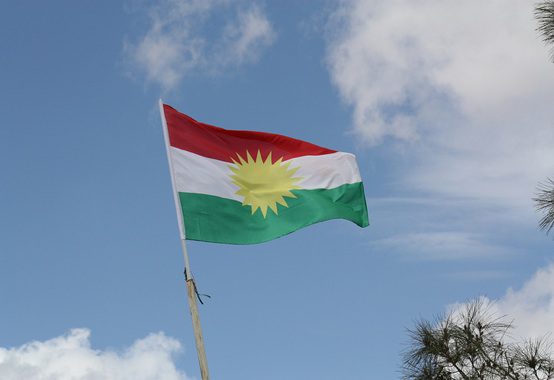Paul’s Odd Support for Kurdish Independence

Rand Paul has jumped on the Kurdish independence bandwagon:
“But I would go one step further: I would draw new lines for Kurdistan and I would promise them a country,” Paul said.
Paul is also calling for sending more arms to Kurdish fighters as part of the war on ISIS. That’s a debatable proposition, but it is understandable given his support for the war. Calling for setting up an independent Kurdistan makes much less sense. There’s nothing quite so interventionist as redrawing the map of another country and creating a new state. There doesn’t seem to be any compelling American interest in having an independent Kurdistan, and at least one formal American ally still has very strong objections to it. It’s not at all clear that formally splitting up Iraq aids in the fight against ISIS. It is more likely to distract from that fight and could create an occasion for conflict between some of ISIS’ enemies. It doesn’t seem to be necessary in order to retain Kurdish support for the war.
Even if an independent Kurdistan did those things, it would be a dangerous and potentially explosive thing to do. It is doubtful that the government in Baghdad would agree to it, and it is also extremely unlikely that Iran or Turkey would ever approve of the creation of a Kurdish state. Erdogan has stated recently that a Kurdish state would “endanger the region.” A landlocked state whose independence would be opposed to one degree or another by its most important neighbors is not likely to be a very successful one, and in that case it would probably become a dysfunctional international or U.S. ward. The biggest problem with Paul’s position is that he doesn’t seem to have thought through any of the implications of what Kurdish independence would mean for the countries affected by it. When proposing something as consequential as the formal independence of a new state, that’s just not good enough.
Since the end of the Cold War, many Westerners have generally been too eager to encourage the break-up of other countries and to support independence of weak states that sometimes become dysfunctional and failed ones. One problem with this is that Westerners tend to treat the creation of a new state as part of a solution to some regional problem, but it often just results in making one country’s internal problems into international ones. Another is that Westerners have tended to pay little or no attention to the countries they have helped to create once independence has been achieved, which leaves the people in those countries at the mercy of their local rulers, and those rulers are usually much more authoritarian and abusive than they were made out to be during the earlier fight for independence. Those leaders are portrayed romantically as “freedom fighters” when they’re out of power, and then they prove to be heavy-handed and thuggish once they control their own government. Kosovo and South Sudan both stand out as examples of what can become of such countries whose independence the U.S. made possible. Eritrea is another experiment in self-determination that resulted in the creation of an awful authoritarian state. It’s possible that an independent Kurdistan would end up being better off than any of those, but that isn’t saying much and it isn’t a reassuring track record. Finally, it appears that many Kurds in Iraq understand that independence isn’t really a viable option for them, and so there is even less of a reason to be proposing this.
Kurdish independence probably wouldn’t help to solve any outstanding security problems in the region, and it would probably create a few more along the way. It would probably further destabilize the region and could potentially drag the U.S. into the role of guaranteeing the state’s independence against its hostile neighbors. There is no discernible U.S. interest in any of this.
Comments